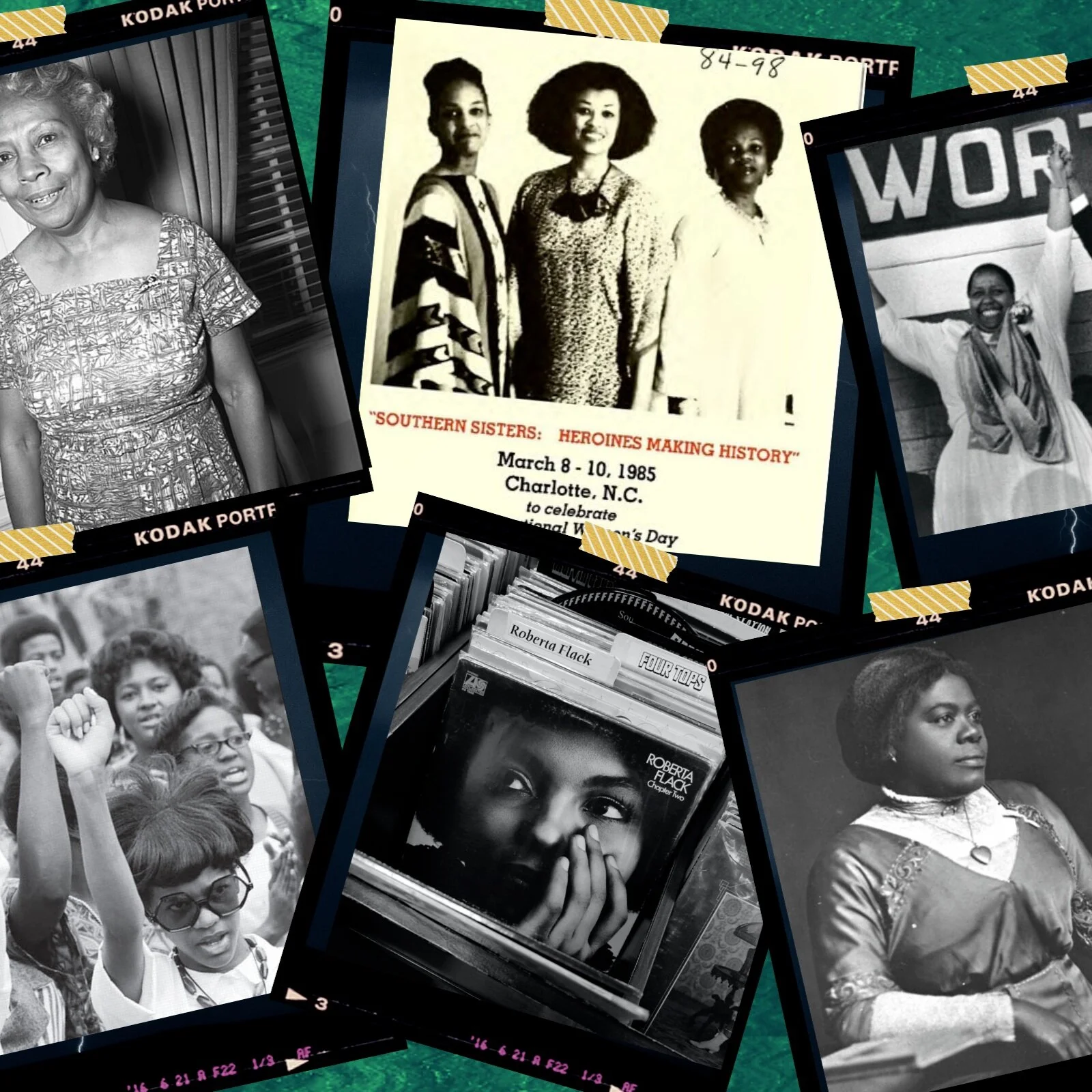Writer Karla Mendez reflects on the power of Sonia Sanchez, whose pioneering work has changed the way we view poetry.
Read MoreAurielle Marie’s poetry collection, Gumbo Ya Ya, is a demand for and insistence on the cultivation of other worlds where Black gxrls are free from constant violence, terror, regulation, and judgement – where joy, pleasure, and peace are not only possible but abundance.
Read MoreA reading list by Kharoll-Ann Souffrant from her teach-in “Pioneers Long Before #MoiAussi: Black Women, Rape Culture, and Digital Feminist Activism in Quebec” for the School for Black Feminist Politics.
Read MoreCheck out our reading list from our Caribbean Feminisms Series.
Read MoreDr. Francesca Sobande’s teach-in on “Black Women’s Media Experiences & the Rise of Brand “Woke-Washing” is a part of Black Women Radicals’ School For Black Feminist Politics.
Read MoreBlack women and gender non-conforming and non-binary people’s histories, productions, leadership, and activism has often been overlooked, forgotten, and ignored in the United States and beyond. Here are 16 Black and Brown women-led archival projects that are reclaiming and restoring what white heteronormative patriarchal revisionist history tried to destroy and take from us.
Read MoreAmerican poet, novelist, and playwright, Paul Laurence Dunbar wrote the poem “We Wear the Mask” in the early nineteenth century. The poem is one of the earliest enunciations of Black people’s experiences navigating between multiple worlds in the U.S. Now over 100 years later, his words are eerily relevant in the face of the 2020 COVID19 pandemic. As we think about the consequences and realties of living in the COVID-19 moment, two queer Black feminist scholars reexamine their own experiences of Black life, Black death, and Black material culture feeding into our newest iteration of the mask.
Read MoreCheck out our “Black and Asian-American Feminist Solidarities” Reading List.
Read MoreAfro-Brazilian filmmaker, activist, and producer, Éthel Oliveira is on a mission to ensure that the life of the late Marielle Franco and the resistance and resiliency of Black people in Brazil are documented.
Read MoreVilissa Thompson (she/her/hers) is making it known that Black disabled women, femmes, and non-binary folks are not waiting for a seat at the table––they have destroyed that “table” and are creating their own spaces and platforms on their own terms.
Read MoreDr. Shannen Williams (she/her/hers) is uncovering the largely hidden history of Black Catholic sisters and their formidable roots, activism and leadership in the Black radical tradition and the Black freedom struggle.
Read MoreMaya Millett (she/her/hers) is on a mission to ensure the politics, activism, histories and lives of our earliest Black feminist foremothers will never be erased from history again.
Read MoreActivist and organizer Je’Kendria Trahan (she/they) is using healing, conjuring, and organizing as a means to catalyze personal, collective, and political transformation and revolution in Washington, D.C. and beyond.
Read MoreAlexis McKenney (she/her/hers) believes knowing, centering, and acknowledging the long and rich legacy of Black activism––particularly, Black women’s activism––in D.C. should be central to organizers’ praxis.
Read MoreQuartice Robinson (she/her/hers) is happy to find queer community and family at Fayetteville State University.
Read MoreGenderqueer activist, organizer, and environmentalist Eva Dickerson (they/theirs/she/hers) wants more than just LGBTQ+ representation at HBCUs––they want gender equity and gender justice
Read MoreFor Keri Gray (she/her/hers), loving her Black disabled womanhood is not just a radical declaration to the world––it is radical reclamation of self.
Read MoreAnayah Sangodele-Ayoka (she/her/hers) was almost kicked out of a community clinic for breastfeeding her newborn baby. After such an unbelievable experience, Sangodele-Ayoka turned her anger into action by co-founding Black Breastfeeding Week and standing in the gap for Black people who breast and chest feed.
Read MoreIvorian-American women’s rights activist Stephanie Kimou (she/her/hers) was tired of African women being overlooked in the historical and contemporary white spaces of domination in the international development sector. So, she decided to do something about it.
Read More


















